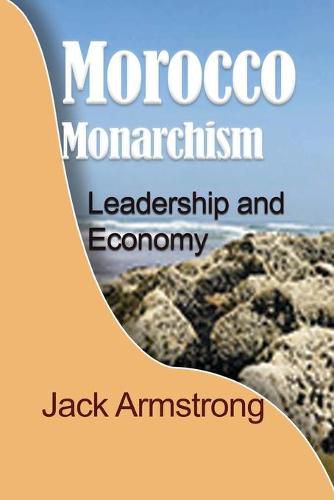Readings Newsletter
Become a Readings Member to make your shopping experience even easier.
Sign in or sign up for free!
You’re not far away from qualifying for FREE standard shipping within Australia
You’ve qualified for FREE standard shipping within Australia
The cart is loading…






This title is printed to order. This book may have been self-published. If so, we cannot guarantee the quality of the content. In the main most books will have gone through the editing process however some may not. We therefore suggest that you be aware of this before ordering this book. If in doubt check either the author or publisher’s details as we are unable to accept any returns unless they are faulty. Please contact us if you have any questions.
Morocco Monarchism, Leadership and Economy, Morocco Islamist Political strength. A History Book of information on Morocco. In the aftermath of the Morocco 2016 general elections, the general population, alongside observers, are wandering in post-electoral mayhem. With the freshly reelected conservative Islamist Justice and Development Party (PJD), Moroccans have shown their forgetfulness of the recent past and their lack of faith in any real change occurring in the near future. Thus a look back at the previous election cycle and the five years of PJD government is de rigueur to understand what has happened to a country that only five years ago had wanted a different future for itself. Back in 2011, when hope took over the minds of the disenfranchised, struggling and forgotten silent majority of authoritarian regimes in the Middle East and North Africa, Morocco kept its status as ‘an exception’ in the region. Although it meant no compliment in objective terms, the regime boasted of its ability to keep ‘troublemakers’ at bay while allowing for a new democratic form of governance to be slowly introduced and implemented. As street demonstrations started erupting, later coined the ‘February 20’ movement, the regime was quick to respond. First, in early March 2011, the monarch announced a referendum for an expedited constitutional change - much like those seen by older generations in the country in 1970, 1972, 1992,1996 under former King Hassan II.
$9.00 standard shipping within Australia
FREE standard shipping within Australia for orders over $100.00
Express & International shipping calculated at checkout
This title is printed to order. This book may have been self-published. If so, we cannot guarantee the quality of the content. In the main most books will have gone through the editing process however some may not. We therefore suggest that you be aware of this before ordering this book. If in doubt check either the author or publisher’s details as we are unable to accept any returns unless they are faulty. Please contact us if you have any questions.
Morocco Monarchism, Leadership and Economy, Morocco Islamist Political strength. A History Book of information on Morocco. In the aftermath of the Morocco 2016 general elections, the general population, alongside observers, are wandering in post-electoral mayhem. With the freshly reelected conservative Islamist Justice and Development Party (PJD), Moroccans have shown their forgetfulness of the recent past and their lack of faith in any real change occurring in the near future. Thus a look back at the previous election cycle and the five years of PJD government is de rigueur to understand what has happened to a country that only five years ago had wanted a different future for itself. Back in 2011, when hope took over the minds of the disenfranchised, struggling and forgotten silent majority of authoritarian regimes in the Middle East and North Africa, Morocco kept its status as ‘an exception’ in the region. Although it meant no compliment in objective terms, the regime boasted of its ability to keep ‘troublemakers’ at bay while allowing for a new democratic form of governance to be slowly introduced and implemented. As street demonstrations started erupting, later coined the ‘February 20’ movement, the regime was quick to respond. First, in early March 2011, the monarch announced a referendum for an expedited constitutional change - much like those seen by older generations in the country in 1970, 1972, 1992,1996 under former King Hassan II.